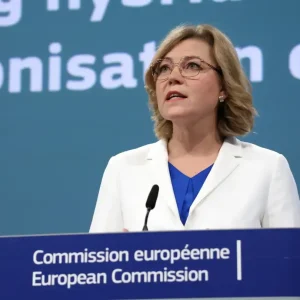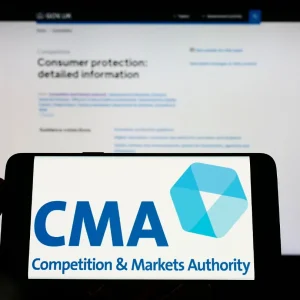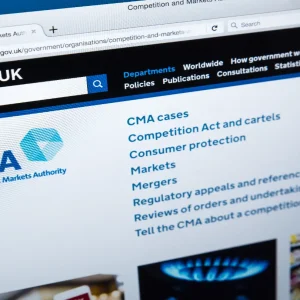
The EU is planning to bring Ukraine into the single market and mobile phone free roaming zone to help the war-torn country accelerate growth and create more opportunities in its burgeoning tech economy, European Commission president Ursula von der Leyen has announced.
Plans to provide a SME relief package to businesses, as a new tax set up which takes into account the impact of digitisation, were also unveiled in Von der Leyen’s state of the union speech today.

Von der Leyen delivered the speech to the European Parliament earlier today, and welcomed the First Lady of Ukraine Olena Zelenska as a special guest. The President told delegates that the EU would support the Ukraine financially and “empower” it to make the “most of its potential.”
She described the country, which has been fighting an invasion by Russia since February 2022, as a “rising tech hub” and as a home to many young innovative companies. According to the IT Ukraine Association, in January 2021 there was 18,600 registered IT entities in the country, growing by 71% since January 2017.
Prior to the war, Ukraine had a growing IT talent pool. In 2021, there were 285,000 IT professionals in the country, growing by 81% since 2017. President Zelensky has already talked about the country's ambitions and showcased them using augmented reality to launch an initiative aimed at making Ukraine "digital-first" to Europe's tech sector.
To help the country accelerate its growth amidst the war with Russia, the president announced that she wanted the EU to "mobilise the full power" of the single market to help accelerate growth and create opportunities.
"We have already suspended import duties on Ukrainian exports to the EU," Von der Leyen told delegates. "We will bring Ukraine into our European free roaming area... and building on all that, the commission will work with Ukraine to ensure seamless access to the single market, and vice-versa."
Von der Leyen added she will soon head to Ukraine for talks with president Volodymyr Zelensky.
EU SME relief announced in State of the Union
Von der Leyen also announced that the EU will move to create a "workforce with the right skills" to drive a green and digital transition, by removing the "obstacles that hold small companies back." She said that small businesses must be at the "centre of this transformation", describing them as the backbone of Europe's long history of industrial prowess.
"As we embark on this transition in our economy, we must rely on the enduring values of our social market economy. It's the simple idea that Europe's greatest strength lies in each and every one of us," Von der Leyen said. "Our social market economy encourages everyone to excel, but it also takes care of our fragility as human beings. It rewards performance and guarantees protection; it opens opportunities, but also set limits. We need this even more today, because the strength of our social market economy will drive the green and digital transition."
The president added that SMEs have always put employees first, especially during times of crisis, but that "inflation and uncertainity are weighing especially hard on them."
"This is why we will put forward an SME Relief Package," von der Leyan explained. "It will include a proposal for a single set of tax rules for doing business in Europe – we call it BEFIT.
"This will make it easier to do business in our Union," she continued. "Less red tape means better access to the dynamism of a continental market. And we will revise the Late Payment Directive."
BEFIT will combine key principles from the EU's existing CCCTB tax regulations and integrate important elements to reflect international progress and digitalisation. The commission wants the rules to take better account of the impact of digitalisation, incorporating intangible assets, and creating a modern new tax framework, suited to the single market.






